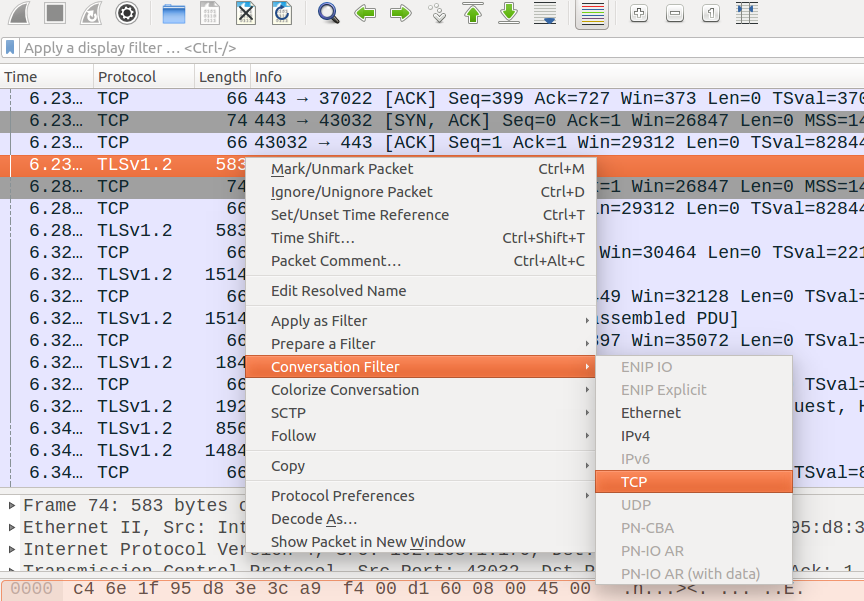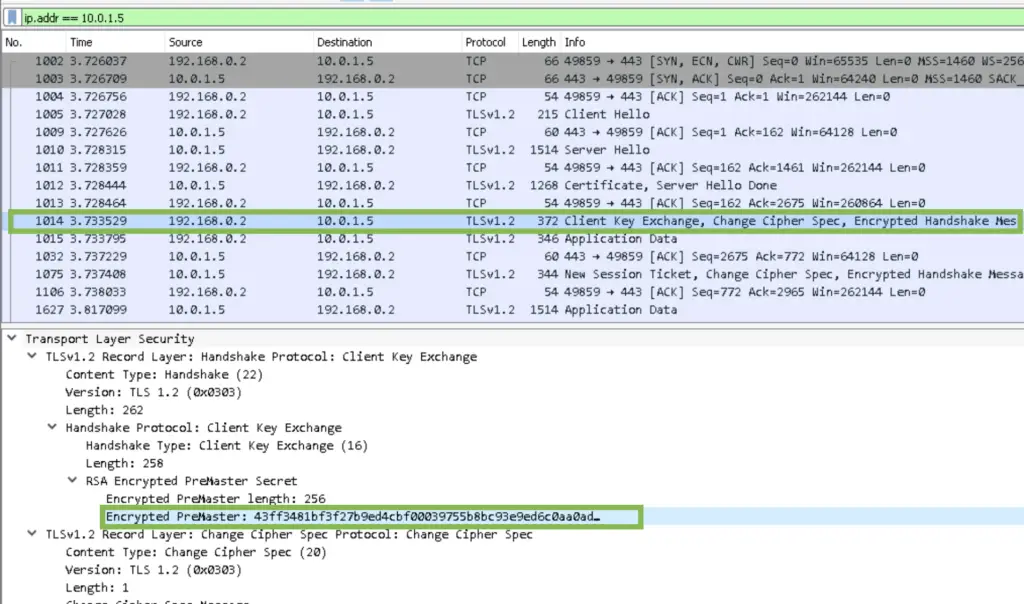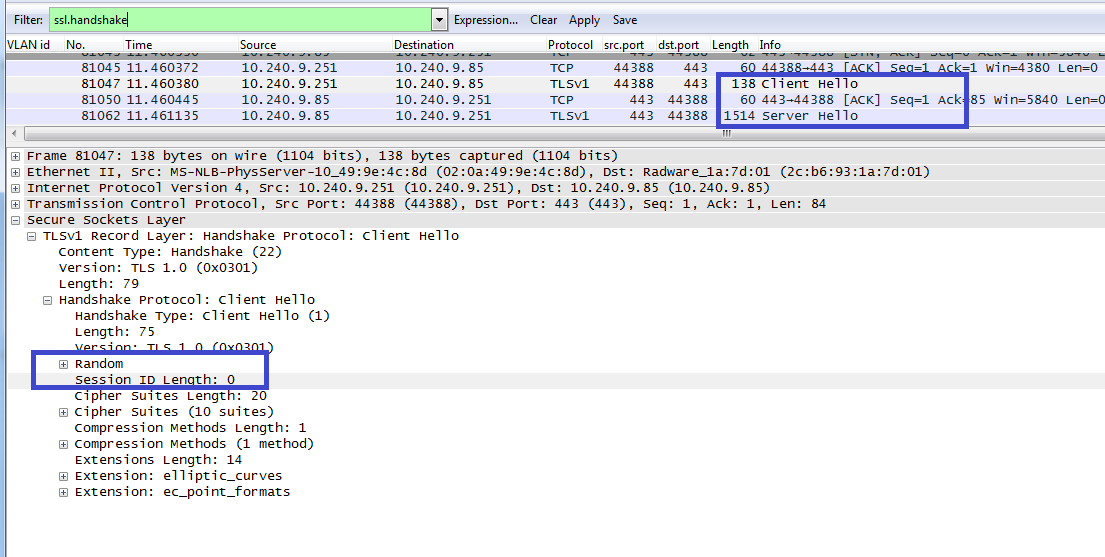
And the server will select the highest supported TLS version by both client and the server. Step #2: Server HelloĪfter the server receives the client hello, it will examine the supported TLS versions and cipher suites sent by the client. You can also see the TLS version, 28-byte random number, all supported cipher suites, and session ID in the packet. If you look at Wireshark, you will see a client hello packet right after the three-way handshake. Wireshark Demo: Client Hello’ details captured in Wireshark


In the client hello message client sends its supported TLS version, UTC time, 28-byte random number, session ID, URL of the server, and supported cipher suites to the server. The client sends a client hello message to the server. Step #1: Client Hello The first step to start a TSL handshake with ‘ Client Hello’ The TLS handshake will kick in with client hello. Once the TCP three-way handshake is done. The source and destination IP address used in this demo TLS v1.2 Protocol Handshake: 199.38.167.35 is the destination Pluralsight. TCP three-way handshakeġ92.168.0.114 is the client machine. At last, the client sends the acknowledgment to the server. Second, the server sends SYN + ACK in response to the client. First, the client sends the SYN packet to the server. To tell in short, a TCP handshake is a three-step process. TCP handshake process is a separate topic, so we are not covering that in this article. In HTTP, the TLS handshake will happen after the completion of a successful TCP handshake. Step #5: Change Cipher Spec And Finished.Step #4: Client Encrypted Key, Change Cipher Spec, and Finished.Step #3: Certificate, Server Encryption Key, and Server Hello Done.However, a server using a certificate for an ECDSA public key can only do DHE or ECDHE key exchange, not RSA. A server using a certificate for an RSA public key can do RSA key exchange (bad, not forward secret), DHE key exchange (slow, unpopular), or ECDHE key exchange (cool, popular). One last note: The choice of RSA key exchange is somewhat independent of the type of key the server certificate uses. Obviously, keeping this log of secrets on disk is a bit of a risk to the forward secrecy of your connections, and it's meant only as a debugging technique. Wireshark can then use those master secrets to decrypt sessions.
#Wireshark certificate exchange software
Some software (at least Firefox, I think also Chrome), will let you turn on an option to just log all of the master secrets it calculates during handshakes. That's where the SSLKEYLOGFILE option that pointed out comes in.

However, obviously at least two parties are able to decrypt the session: the client and the server. It means even if you have the server's private key, you can't decrypt the session, which is the whole point of forward secrecy.

However, in forward secret sessions, both sides use Diffie-Hellman to negotiate a master secret, which means the necessary info to calculate the master secret never actually crosses the wire! It's a remarkable property and still hard to wrap my head around. So you can see that possession of the RSA private key is sufficient to decrypt the pre-master secret and thus deduce the master secret and decrypt the whole session. In non-forward secret handshakes, the server sends the "server random" in the clear the client sends the "pre-master secret" encrypted to the server's RSA key, and both sides calculate the master secret based on that. In TLS 1.3 that's impossible because all cipher suites are forward secret, and even on TLS 1.2 and below, if the server is well-configured and the browser is modern, it should also be impossible. It's possible for Wireshark to decrypt TLS traffic by configuring it with a copy of the server's private key, but as pointed out, that requires that the server and client negotiate a non-forward secret cipher suite. Continuing the discussion from Weird ‘hex’ (?) IP addresses in Apache access logs:


 0 kommentar(er)
0 kommentar(er)
